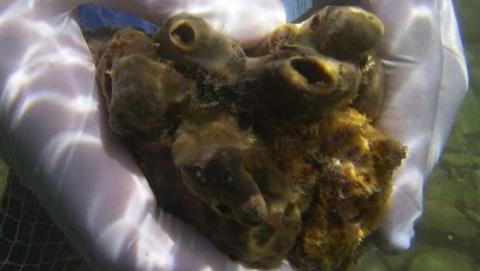
The Mycale henscheli sponge makes a chemical that could one day be a more effective cancer drug, with fewer side-effects than current medicines.
A dull-looking Kiwi sea sponge could provide hope for breast and lung cancer sufferers, Victoria University researchers have found.
The potential drug, produced by the Mycale henscheli sponge, stopped the growth of lung tumours by up to 90 per cent, research published in the Molecular Cancer Therapeutics journal showed.
It was far more effective than similar tumour drugs on the market, biology professor John Miller said.
"In some cases, there was even a decrease in tumour volume."
As the sponge was found mostly in Marlborough's Pelorus Sound, the chemical was named "peloruside".
Miller said the potential drug interfered with a cell's internal mechanisms as it tried to divide itself – which cancers do prolifically compared to normal cells – and so killed it.
As well as being more effective, the natural compound appeared to have fewer side-effects on the mice in the study than current drugs being prescribed.
"The tumour cells develop resistance to [other cancer drugs], but peloruside isn't very susceptible to that, so that's good," Miller said. "But you never know until you try it in humans, that's the problem." Read more.
